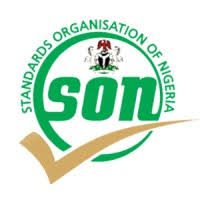


Nigeria signs multi-sectoral agreements with Qatar
President Bola Tinubu on Sunday witnessed the signing of agreements between Nigeria and Qatar in various sectors of the economy.
Chief Ajuri Ngelale, the Special Adviser to the President on Media and Publicity, in a statement, said the signing, which held in Doha, Qatar, was also witnessed by the Emir of that country, Sheikh Tamim Al-Thani.
The agreement, according to Ngelale, will open opportunities for mutual cooperation in pivotal sectors of education, enterprise development, investment promotion, youth empowerment, mining, tourism and sports.
Tinubu assured his host of Nigeria’s preparedness to welcome investors into the country, citing the ongoing reforms that favoured innovation, return on investments and multiculturalism.

“Our greatest strength is our people. Our strength lies in the capacity of Nigerian youths.
” They have energy, talent and self-belief.
” They are quality partners for Qatari industry.
”They are educated and reliable, and they are proactively seeking to add value wherever they are.
” A few cannot give a bad name to the many. Nigerian youths are ready to be unleashed for the mutual benefit of both nations.
“We have seen clearly the rapid pace and thorough quality of Qatar’s development process. It is impossible not to be moved by what you have accomplished.
” The leadership in the country has proven its mettle, and we are here to gain deeper insight.
“There is nowhere in the world where you will find return on investment at the level of what you will see in Nigeria. A massive market of over 200 million skilled Nigerians, always industrious and ready to work.
“We face some short-term turbulence at the moment, but we have a government today that reflects the dynamism and talent of the Nigerian people.
” We are implementing the right solutions.


” This team works collaboratively with each other and our partners,” the president said.
Al Thani, on his part, said he was open to Nigeria’s investment push, recalling his journey to Nigeria in 2019 due to his belief that the country is an important and strategic ally on its own and in regional affairs.
“I have no doubt about the great capacity of the Nigerian people. Everywhere in the world, they are known for their brilliance and hard work.
” We only need to ensure that this is happening inside of Nigeria rather than outside.
”The investments we have made around the world have been very fruitful.
” This is because we take our time and study opportunities before we invest the commonwealth of our people.
“Mr. President, I am very encouraged by your actions and your passion to create new opportunities.
” We are very open to this, and follow-up is everything at this point. The will is there for both of us, but we must follow up.
”I will send a team of officials to Nigeria after Ramadan, and we will advance discussions on what some of the actionable investment opportunities are,” the Qatari leader said.
Tinubu immediately named the Coordinating Minister of the Economy and Minister of Finance, Mr Wale Edun as the team leader of the government team that would interface with Qatari authorities in investment identification and implementation.
During the bilateral deliberations, the president enabled a brief presentation to the Emir by the Minister of Solid Minerals Development, Dr Dele Alake, who spoke in details about the high-grade of several minerals, including lithium.
Alake spoke about derivable potential across the country with an emphasis on imminent opportunities for local mineral processing and value-additive industry in the sector.
The bilateral engagement was followed by a closed-door meeting between the two Heads of State before they proceeded to the signing ceremony for seven bilateral agreements across multiple sectors.
The seven agreements signed include cooperation agreement in the field of education and regulation of employment of workers with the Government of Qatar.
Also signed was the agreement on establishment of a joint business council between the Qatar Chamber of Commerce and Industry and the Nigerian Association of Chambers of Commerce, Industry, Mines, and Agriculture.
Agreements were also signed in the field of youths and sports, tourism and business events and a memorandum of understanding on combating illicit trade in narcotic drugs and psychotropic substances.



